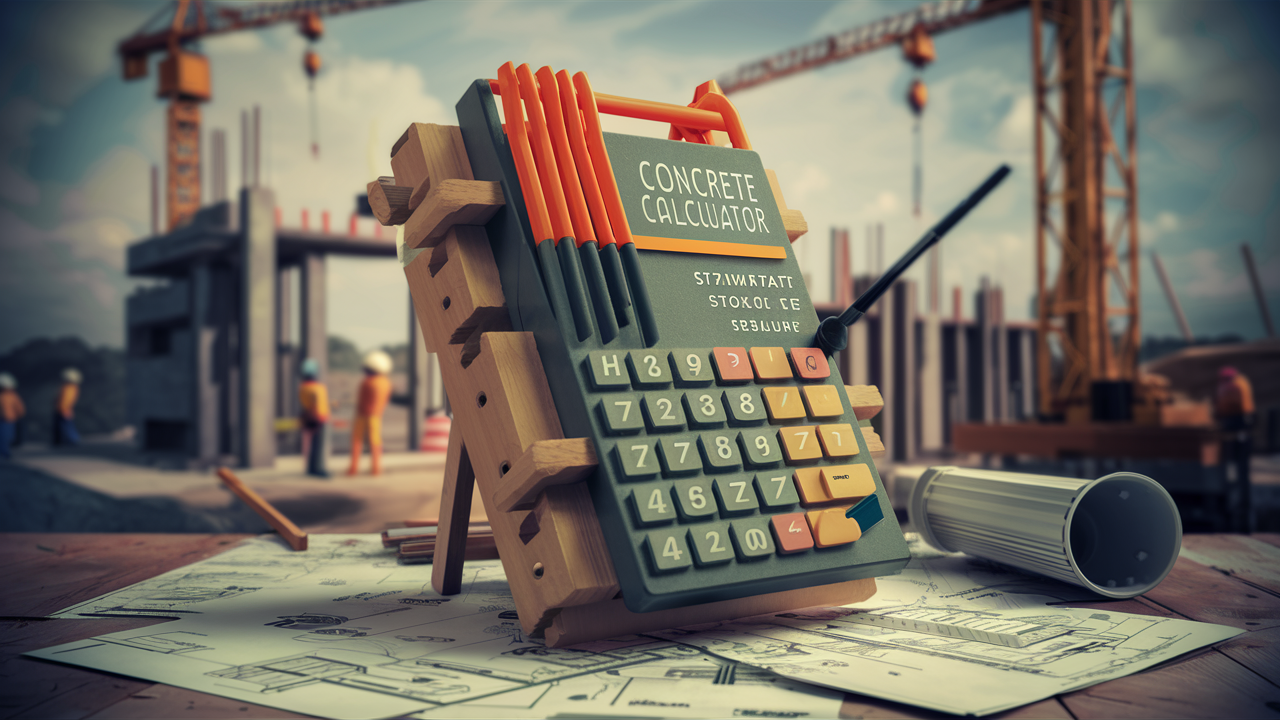Concrete serves as the backbone of numerous construction projects, ranging from residential foundations to towering skyscrapers. However, accurately estimating the materials required for a concrete project can be challenging. This is where concrete calculators come into play, offering a convenient and efficient solution for material estimation.
Introduction to Concrete Calculators
Concrete calculators are digital tools designed to streamline the process of estimating the quantity of concrete, aggregates, and other materials needed for a construction project. Whether you’re planning a small DIY endeavor or managing a large-scale commercial development, these calculators prove invaluable in ensuring precise material procurement.
Importance of Accurate Material Estimation
Accurate material estimation is paramount in any construction project. Underestimating the required materials can lead to delays, cost overruns, and even structural issues. Conversely, overestimating results in unnecessary expenses and wastage. By leveraging concrete calculators, project managers and contractors can eliminate guesswork and optimize resource utilization.
How Concrete Calculators Work
Understanding the Inputs
Concrete calculators typically require inputs such as project dimensions (length, width, and depth), desired concrete mix proportions, and wastage percentage. These inputs enable the calculator to generate an accurate estimation of the materials needed.
Calculating the Required Materials
Based on the provided inputs, the concrete calculator employs mathematical algorithms to compute the quantities of concrete, sand, gravel, and water required for the project. Some advanced calculators may also consider factors like reinforcement and curing agents in their calculations.
Types of Concrete Calculators
Concrete calculators are available in various formats to cater to different user preferences and requirements. Online concrete calculators accessible through web browsers offer convenience and accessibility, while mobile applications provide on-the-go functionality for construction professionals.
Advantages of Using Concrete Calculators
The utilization of concrete calculators offers several advantages, including:
- Time Savings: Manual material estimation can be time-consuming and prone to errors. Concrete calculators automate the process, allowing users to obtain accurate results within minutes.
- Cost Efficiency: By precisely determining material quantities, concrete calculators help minimize wastage and optimize resource allocation, leading to cost savings.
- Enhanced Accuracy: Advanced algorithms employed by concrete calculators ensure precise material estimations, reducing the likelihood of project delays or shortages.
Step-by-Step Guide to Using a Concrete Calculator
Choosing the Right Calculator
Select a concrete calculator that aligns with the specific requirements of your project. Consider factors such as the type of construction, desired concrete mix, and available features.
Inputting the Required Data
Enter the project dimensions, concrete mix proportions, and any additional parameters requested by the calculator. Double-check the inputs to ensure accuracy.
Interpreting the Results
Review the calculated quantities of concrete, aggregates, and other materials. Pay attention to any recommendations or suggestions provided by the calculator regarding adjustments or optimizations.
Factors Affecting Material Estimation
Several factors can influence the accuracy of material estimation, including:
- Project Size and Scope: Larger projects typically require higher volumes of materials. Consider the scale of the construction when estimating material quantities.
- Concrete Mix Design: The specific mix design chosen for the project affects the proportions of ingredients required. Ensure the calculator accommodates the chosen mix design.
- Waste and Spillage: Account for potential wastage and spillage during the construction process by incorporating a reasonable wastage percentage into the calculations.
Tips for Efficient Material Estimation
To optimize material estimation and minimize discrepancies, consider the following tips:
- Double-Checking Calculations: Verify the inputs and outputs of the concrete calculator to eliminate errors or inaccuracies.
- Considering Contingencies: Factor in unexpected circumstances or variations in material requirements by incorporating a buffer or contingency margin into the calculations.
- Consulting Professionals: Seek advice from experienced contractors or construction professionals to ensure the accuracy and reliability of material estimations.
Common Mistakes to Avoid
When utilizing concrete calculators, beware of the following common pitfalls:
- Underestimating Material Needs: Failing to account for all necessary materials can result in project delays and budget overruns.
- Overlooking Site Conditions: Environmental factors such as terrain, weather, and accessibility can influence material requirements. Evaluate site conditions carefully.
- Neglecting Safety Measures: Prioritize safety by ensuring that material estimations account for protective gear, safety barriers, and other essential requirements.
Real-Life Examples of Concrete Calculator Applications
Concrete calculators find widespread application across various construction projects, including:
- Residential Construction: Estimating materials for foundations, driveways, and sidewalks.
- Commercial Development: Calculating concrete requirements for commercial buildings, parking lots, and infrastructure projects.
- Infrastructure Projects: Planning concrete usage for bridges, highways, and other civil engineering endeavors.
Conclusion
Concrete calculators offer a user-friendly and efficient solution for estimating materials in construction projects of all sizes. By leveraging these digital tools, contractors and project managers can enhance accuracy, optimize resource utilization, and streamline the construction process. Embracing technology-driven solutions such as concrete calculators exemplifies the construction industry’s commitment to innovation and efficiency.
FAQs
- How accurate are concrete calculators?Concrete calculators employ advanced algorithms to provide accurate material estimations, although variations may occur based on factors such as mix design and site conditions.
- Can concrete calculators be used for different types of projects?Yes, concrete calculators are versatile tools suitable for a wide range of construction projects, including residential, commercial, and infrastructure developments.
- Are there any free concrete calculator apps available? Yes, numerous free concrete calculator apps are available for both iOS and Android devices, offering convenient access to material estimation tools on the go.
- What if my project requires a non-standard concrete mix?Some concrete calculators allow users to input custom mix designs, accommodating a wide range of project requirements and specifications.
- Should I add extra materials as a safety margin?It’s advisable to include a contingency margin to account for potential wastage, variations in site conditions, and unforeseen circumstances, ensuring that the project remains well-prepared for any eventualities.
